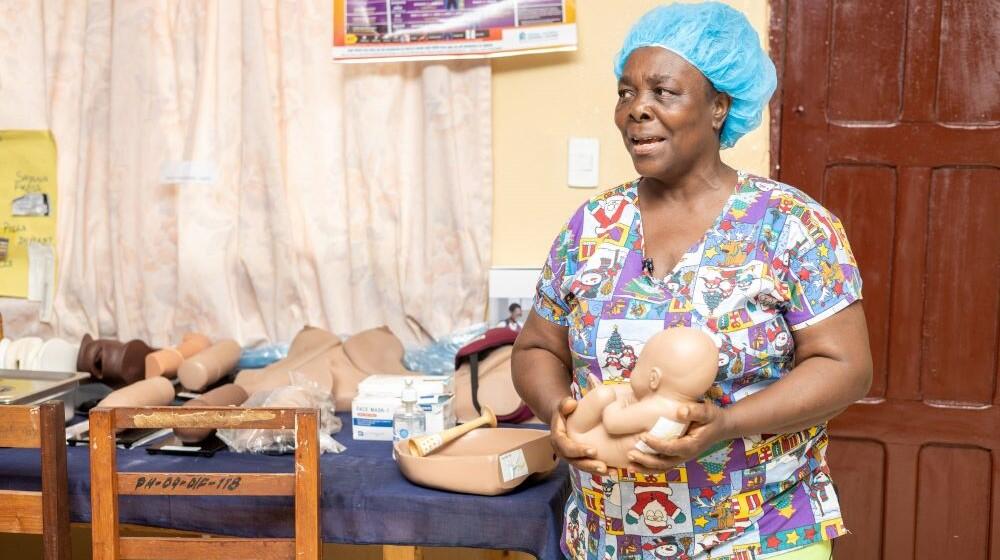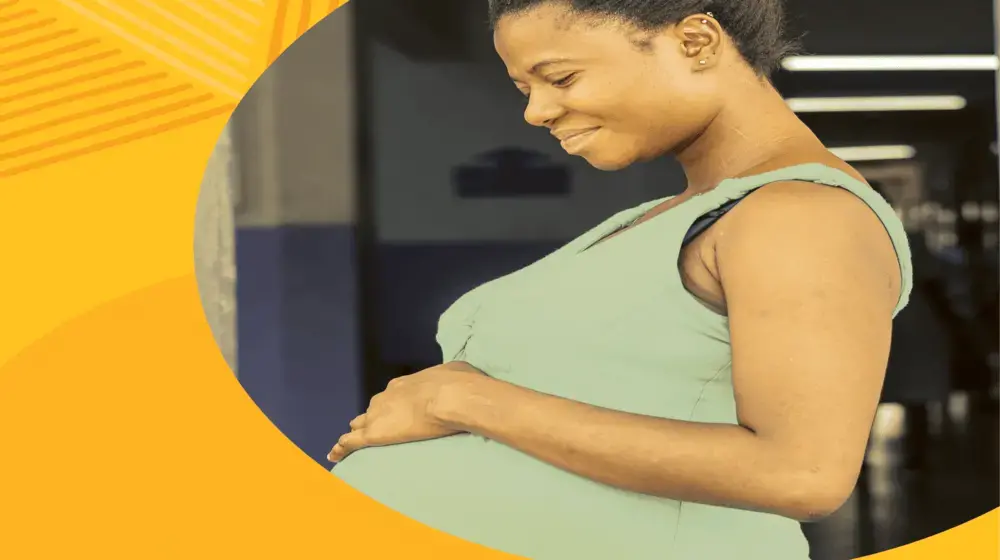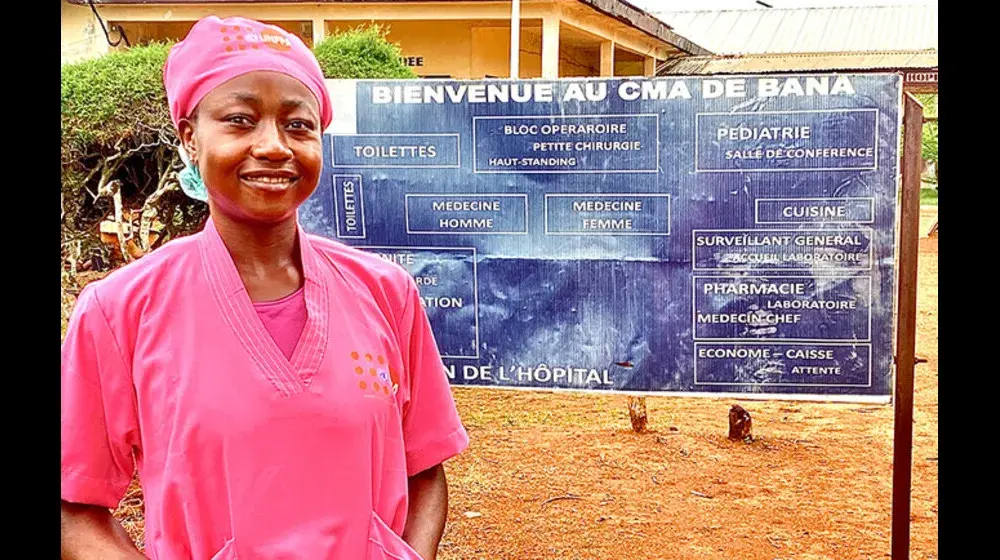At the Phebe-Esther Bacon College of Health Sciences, a new chapter in midwifery education is being written. Thanks to the UNFPA-equipped learning lab, the institution is now offering a hands-on learning experience that is transforming the way midwifery students are trained. With advanced birth models and equipment, the quality of education has dramatically improved and enrollments are on the rise.
Patty, a seasoned professional with over 30 years of experience is the leader of this charge. “Before, it was difficult to simulate real-life situations for students,” she says. “Now, with the equipment provided by UNFPA, we can create scenarios that fully immerse students in practical learning, enhancing both their knowledge and skills.”
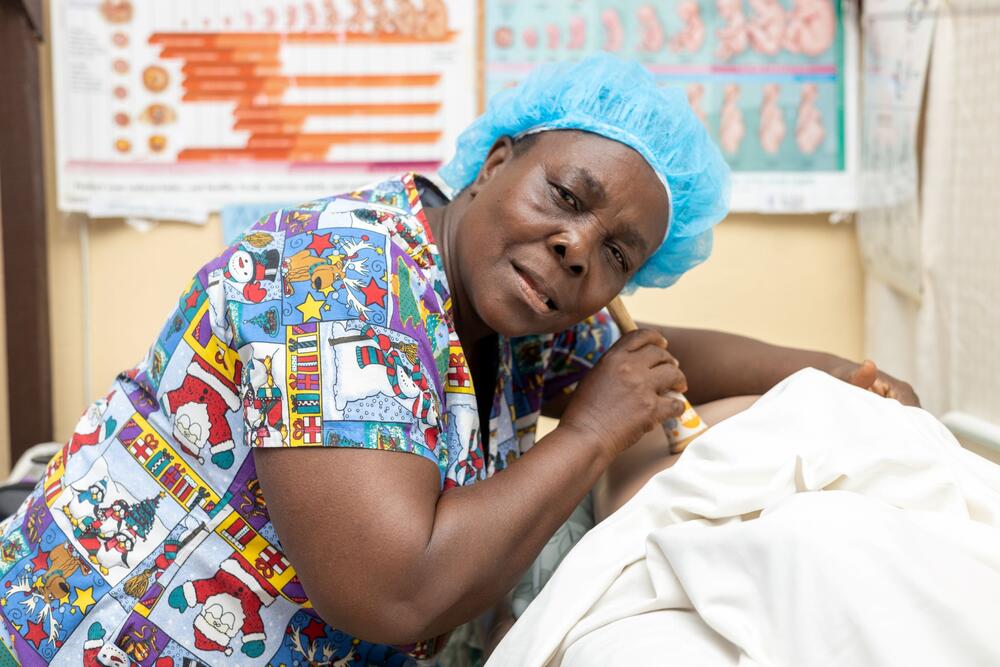
The learning lab provides students with the requisite tools to practice critical procedures safely and in a controlled environment. Interactive birth models allow students to visualize and simulate childbirth mechanics, preparing them for the real-world challenges they will face as midwives.
“As a result of UNFPA’s support to the institution, we are witnessing a gradual increase in students’ enrolment into our midwifery training programme,” says Mr. Humphrey Gibbs Loweal, Dean of Phebe- Esther Bacon College of Health Sciences.
Liberia has just one midwife or nurse for every 1,250 people, most of whom are based in urban areas. The lack of incentives and career opportunities for midwives drives them away from rural communities, where they are most needed. The maternal and newborn mortality rates remain high, with 742 mothers dying per 100,000 live births due to limited access to midwifery and emergency obstetric care, especially in rural areas. Although skilled birth attendance increased from 61 percent in 2013 to 84 percent by 2019-20, the shortage of trained midwives is a major barrier to reducing these deaths.

Closing the gap on the shortage of midwives
Between 2020 and 2021, UNFPA equipped and funded two midwifery training institutions, including the Phebe Training Program in central Liberia and the Dianna K Isaacson School of Midwifery in southeastern Liberia, to ensure that 194 midwifery and nurse-anaesthetic students complete their training cycles, respectively.
UNFPA, in collaboration with Liberia’s Ministry of Health, has also been working to strengthen midwifery education and improve career pathways. This includes developing a direct-entry curriculum and supporting 40 midwives in obtaining bachelor’s degrees in midwifery for the first time in Liberia.
The result is a more confident, competent group of graduates ready to serve where they are most needed. Caroline, a 31-year-old aspiring midwife, feels the impact of this hands-on training. “The teachers are fantastic, and with this equipment, I feel fully prepared to deliver my first baby,” she says. Like many of her peers, she is passionate about improving maternal care in rural Liberia, where the need is greatest.
The equipped lab is the centrepiece of this transformation, bridging the gap between theory and practice and laying the foundation for a better future in maternal healthcare.
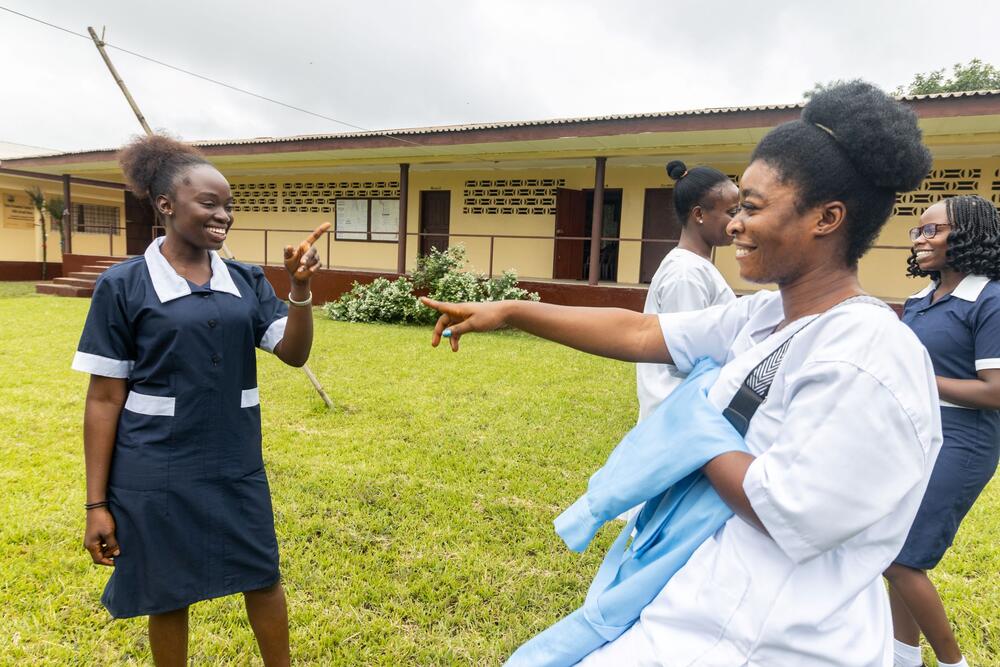
The school’s positive atmosphere also plays a crucial role in keeping the students motivated. The uniformed midwives are eager to learn and share a deep sense of camaraderie. A dedicated song, "I want to be a midwife, that’s what I want to be!" frequently echoes through the lab, lifting spirits and reminding students of their shared passion. The song is a rallying cry that bonds them together, especially during the more challenging aspects of their studies, creating a vibrant and supportive learning environment.
With a vision to improve Liberia’s maternal health outcomes, Patty and her team are committed to producing skilled midwives who can make a real difference. “With the right resources and support,” she says, “we can ensure that every woman receives the care she deserves.”

